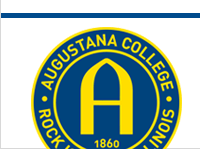
Global Public Health
Title
Course
PUBH-100: Global Issues in Public Health
Document Type
Report
Publication Date
2018
Disciplines
Diseases | Immunology and Infectious Disease | Infectious Disease | Public Health | Public Health Education and Promotion | Virus Diseases
Description, Abstract, or Artist's Statement
Mozambique is a country located in Southeastern Africa near the Mozambique Channel and the Indian Ocean. The president of this nation is Filipe Jacinto Nyusi. The total population is 26, 573, 706 which is composed of mostly 99.68% Africans and other minorities. Its national language is Portuguese although most of the population speaks Emarkhuwa. Most of the population is Catholic and a few others include Muslims and Zionist Christians. Mozambique faces several challenges with malaria, poverty, malnutrition, HIV/AIDS, and illicit drugs. HIV/AIDS is a common health problem that targets the immune system and is transmitted through bodily fluids such as engaging in unprotected sex. Young women between the ages of 15-24 in Mozambique are at a greater risk because they engage in unprotected sex at an early age. Only a small portion of these women are using protection. As of 2015, Mozambique has estimated over 34,000 deaths relating to HIV/AIDS in adults over the age of 15. Some organizations such as the National AIDS Council are attempting to lower the infection rates and reduce the number of deaths. Other organizations have teamed up to deliver adequate care by providing antiretroviral therapy to 30,000 adults and children in Mozambique.
Augustana Digital Commons Citation
Davila, Camila. "Mozambique: HIV/AIDS" (2018). Global Public Health.
https://digitalcommons.augustana.edu/pubh100global/31
Creative Commons License

This work is licensed under a Creative Commons Attribution 4.0 License.
Included in
Immunology and Infectious Disease Commons, Infectious Disease Commons, Public Health Education and Promotion Commons, Virus Diseases Commons
